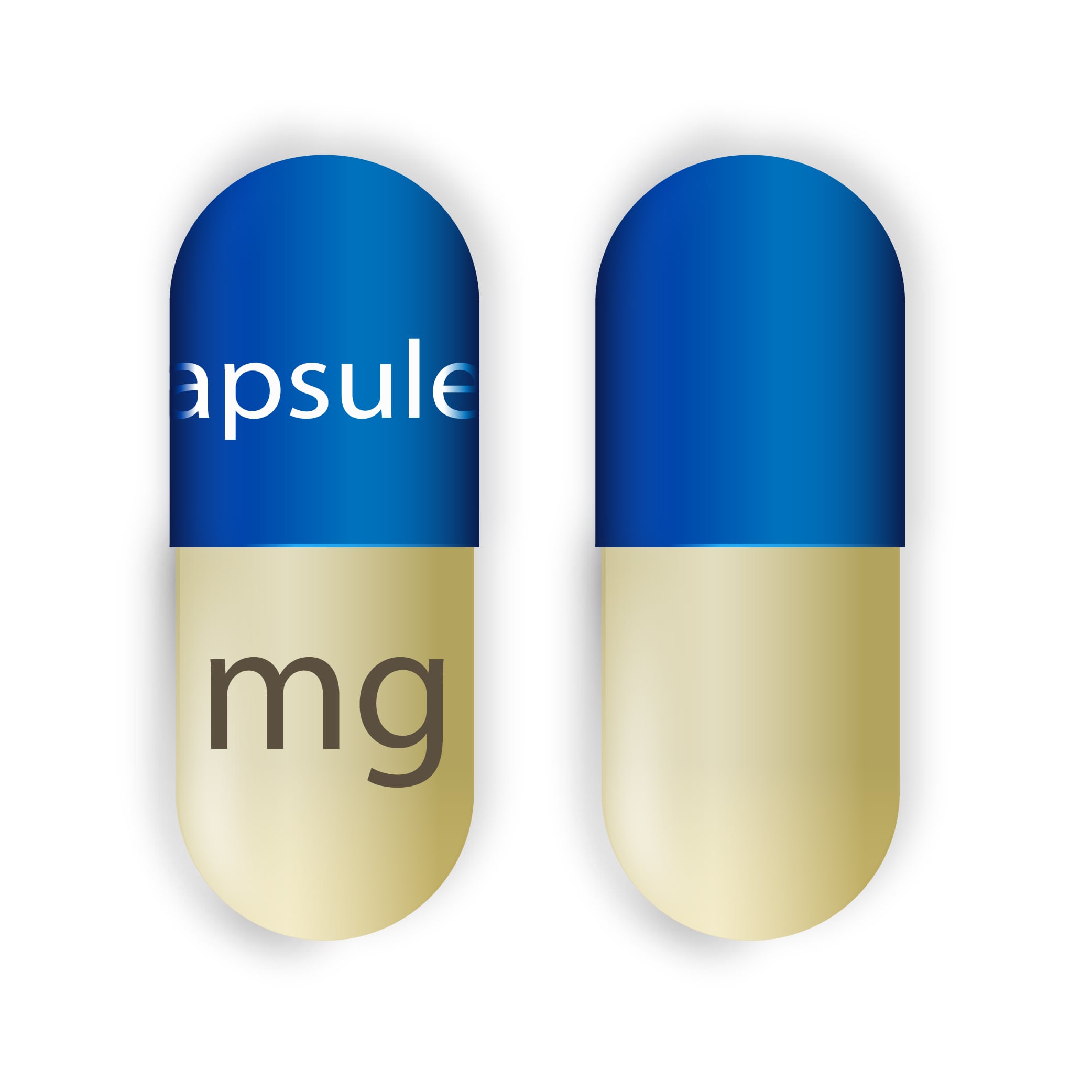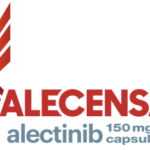About Alectinib
- Alectinib stands as a pivotal anti-cancer medication, specifically tailored for the treatment of non-small-cell lung cancer (NSCLC).
- Positioned as an orally bioavailable tyrosine kinase inhibitor, its mechanism of action revolves around the proficient inhibition of ALK and RET proteins, meticulously preventing their phosphorylation.
- This strategic interference disrupts the activation of ALK, subsequently curtailing downstream signaling pathways that orchestrate cell proliferation.
- The consequential effect is a noteworthy reduction in tumor survivability.
- This groundbreaking pharmaceutical intervention is meticulously administered through oral ingestion, exemplifying its accessibility and patient-friendly mode of delivery.
- The development and formulation of Alectinib are attributed to the scientific prowess of Chugai Pharmaceutical Co., Japan, an integral part of the esteemed Hoffmann-La Roche group.
- The synergy of precision in targeting cancer-specific proteins and the convenience of oral administration underscores Alectinib’s significance in the contemporary landscape of NSCLC treatment, offering a beacon of hope for patients navigating this challenging medical terrain.
Strength:
Alectinib capsules are available in strengths of 150 mg.
Recommended Dosage:
It is essential to implement strict administration precautions to ensure the safety and well-being of patients.
- The prescribed dosage for Alectinib entails the administration of 600 mg orally twice daily, preferably with food.
To address adverse reactions, a systematic dose reduction schedule is recommended.
- Starting dose: 600 mg taken orally twice daily
- First dose reduction: 450 mg taken orally twice daily
- Second dose reduction: 300 mg taken orally twice daily
Patients who are unable to tolerate the reduced dosage of 300 mg twice daily are advised to discontinue Alectinib. These meticulous recommendations for dose adjustments serve as a strategic approach to managing adverse reactions and optimizing the therapeutic benefit of Alectinib in the treatment protocol.
Important:
Alectinib 150 mg is to be continued until there is evidence of disease progression or the emergence of unacceptable toxicity. It is imperative not to open or dissolve the contents of the capsule. In instances where a dose of Alectinib is inadvertently missed or if vomiting occurs after ingestion, the subsequent dose should be taken at the scheduled time.
Adhering to protocols is crucial in Alectinib treatment. Healthcare providers must monitor and address adverse reactions promptly. Regular follow-ups and open communication ensure a responsible approach.
Warnings & Precaution:
- Hepatotoxicity: Rigorous monitoring of liver laboratory tests is essential, with a frequency of every 2 weeks throughout the initial 3 months of Alectinib treatment. Subsequently, the monitoring should continue every month and as clinically indicated. For patients exhibiting elevations in transaminase and bilirubin levels, especially in severe cases, a strategic approach involves temporary withholding, followed by dose reduction, or permanent discontinuation of Alectinib as deemed necessary.
- Interstitial Lung Disease (ILD)/Pneumonitis: In cases where patients are diagnosed with ILD/pneumonitis, an immediate suspension of Alectinib is recommended. Permanent discontinuation becomes imperative if no alternative causes for ILD/pneumonitis are identified.
- Renal Impairment: For patients with severe renal impairment, a prudent course of action involves the temporary withholding of Alectinib. Upon recovery, the reintroduction of Alectinib at a reduced dose is an option, or permanent discontinuation may be considered.
- Bradycardi: Regular monitoring of heart rate and blood pressure is advised. In cases of symptomatic bradycardia, a systematic approach includes temporarily withholding Alectinib, followed by dose reduction, or permanent discontinuation.
- Severe Myalgia and Creatine Phosphokinase (CPK) Elevation: A proactive measure involves assessing CPK levels every 2 weeks in the initial month of Alectinib treatment. Additionally, in patients reporting unexplained muscle pain, tenderness, or weakness, CPK evaluation is crucial. In instances of severe CPK elevations, a recommended course of action comprises temporary withholding, followed by either resumption or dose reduction.
Common Alectinib Side Effects:
- Edema
- Myalgia
- Anemia
- Constipation (most common)
- Nausea and vomiting
- Diarrhea
- Mouth sores
- Loss of appetite
- Musculoskeletal
- Muscle pain
- Fatigue
- Weakness
Use in Specific Population
- Administration of Alectinib to expectant mothers carries the potential for fetal harm, as indicated by animal studies and the drug’s mechanism of action.
- Information regarding the presence of alectinib or its metabolites in human milk, its impact on breastfeeding infants, and its effects on milk production is unavailable.
- Lactating women are strongly advised to refrain from breastfeeding during Alectinib treatment and for one week post the final dose due to the potential for severe adverse reactions in infants.
- Women of reproductive age are recommended to use effective contraception throughout Alectinib treatment and for one week following the final dose.
- Considering genotoxicity findings, males with female partners of reproductive potential should practice effective contraception during Alectinib treatment and for three months after the last dose.
- The drug’s safety and efficacy in pediatric patients are yet to be established. While no dose adjustment is suggested for those with mild or moderate renal impairment, the safety of Alectinib in severe renal impairment or end-stage renal disease remains unstudied.
- Similarly, no dose adjustment is proposed for mild hepatic impairment, with the safety of Alectinib in moderate or severe hepatic impairment yet to be explored.
Storage and Handling
Do not store above 30°C (86°F). Store the capsule at its original container. Do not freeze the medicine. Keep the medicine away from pets and children.
- 240 capsules per bottle
About Sansfro
Sansfro is committed to bridging the healthcare gap. Our purpose is to bring hope and healing to patients suffering from rare diseases by linking them with life-saving treatments through our Named Patient Program. Join us in our quest for a better and healthier world.
Know More...Alternate Indian Generic Brand
Alecensa
FAQ'S
What is Alectinib, and what conditions does it treat?
Alectinib is an anticancer medication used for the treatment of non-small-cell lung cancer (NSCLC). It is an orally bioavailable tyrosine kinase inhibitor that targets ALK and RET proteins, inhibiting their phosphorylation and preventing downstream signaling associated with cell proliferation.
How is Alectinib 150 mg administered?
The recommended dose of Alectinib is 600 mg orally twice daily with food. It should be taken until disease progression or unacceptable toxicity occurs. The capsules should not be opened or dissolved.
What should be done if a dose of Alectinib 150 mg is missed or vomiting occurs after taking a dose?
If a dose is missed or vomiting occurs after taking Alectinib, the next dose should be taken at the scheduled time. No special actions, such as doubling the dose, are advised.
Are there dose modifications for adverse reactions with Alectinib?
Yes, there is a dose reduction schedule for Alectinib based on adverse reactions. The schedule includes the starting dose of 600 mg orally twice daily, with first and second dose reductions to 450 mg and 300 mg orally twice daily, respectively. If patients cannot tolerate the 300 mg dose, discontinuation may be necessary.
What adverse reactions and potential risks should be monitored during Alectinib treatment?
Several adverse reactions require monitoring, including hepatotoxicity, interstitial lung disease (ILD)/pneumonitis, renal impairment, bradycardia, and severe myalgia with creatine phosphokinase (CPK) elevation. Specific actions, such as dose reduction or discontinuation, may be necessary based on the severity of these reactions.
How should hepatotoxicity be monitored, and what actions should be taken in case of elevation in liver laboratory tests?
Hepatotoxicity should be monitored with liver laboratory tests every 2 weeks during the first 3 months of treatment, then once a month and as clinically indicated. In case of severe ALT, AST, or bilirubin elevations, Alectinib may need to be withheld, the dose reduced or permanently discontinued.
What precautions should be taken regarding pregnancy and breastfeeding during Alectinib treatment?
Alectinib can cause fetal harm, and there is no data on its presence in human milk. Pregnant women and lactating women are advised to avoid Alectinib. Effective contraception is recommended for females of reproductive potential during treatment and for 1 week after the final dose. Males with female partners of reproductive potential should also use effective contraception during treatment and for 3 months after the final dose.
Is Alectinib safe for pediatric patients?
The safety and effectiveness of Alectinib in pediatric patients have not been established.
Are dose adjustments recommended for patients with renal or hepatic impairment?
No dose adjustment is recommended for patients with mild or moderate renal impairment. However, the safety of Alectinib in patients with severe renal impairment or end-stage renal disease has not been studied. Additionally, no dose adjustment is proposed for mild hepatic impairment, while the safety of Alectinib in patients with moderate or severe hepatic impairment remains unstudied.
What is the difference between Alectinib and Alecensa?
Alectinib and Alecensa refer to the same medication. Alecensais the brand name for the drug Alectinib, Therefore, there is no difference between them; they represent the same pharmaceutical product with Alectinib as the active ingredient. Consult your doctor for more information.
What is the Alectinib price in India?
In India, the pricing of Alectinib depends on choosing between a branded generic and an authorized generic. Authorized generics and branded generics serve as alternatives to Innovator medications, offering more cost-effective options compared to brand-name equivalents. For a comprehensive list of available alternatives for this medication, kindly contact Team Sansfro.
How can I buy Alectinib online?
To obtain the generic version of Alectinib from India, individuals can initiate the process by submitting an inquiry on the website or reaching out to the Sansfro Health team. Contact us either via phone at +91 9315705373 or through email at help@sansfro.com. Our services encompass the provision of medications both within India and on a global scale.

Dr Anchal Aryan
Medical counselor
Patient Stories
Word Wide Delivery:
India, Andorra, Argentina, Australia, Austria, Azerbaijan, Bahrain, Brazil, Bulgaria, Cambodia, Canada, Chile, Colombia, Costa Rica, Croatia, Cyprus, Denmark, Dominican Republic, Estonia, Finland, France, Georgia, Germany, Ghana, Greece, Guatemala, Iraq, Ireland, Israel, Italy, Jamaica, Japan, Jordan, Kenya, Kuwait, Latvia, Lebanon, Libya, Lithuania, Malawi, Mexico, Montenegro, Nepal, Netherlands, New Zealand, Nigeria, Norway, Oman, Pakistan, Paraguay, Peru, Poland, Qatar, Romania, Saudi Arabia, Serbia, Singapore, Slovenia, Spain, Sri Lanka, Sweden, Switzerland, United Arab Emirates, United Kingdom, United States, Venezuela, Zimbabwe, Afghanistan, Albania, Algeria, American Samoa, Angola, Anguilla, Antarctica, etc.



